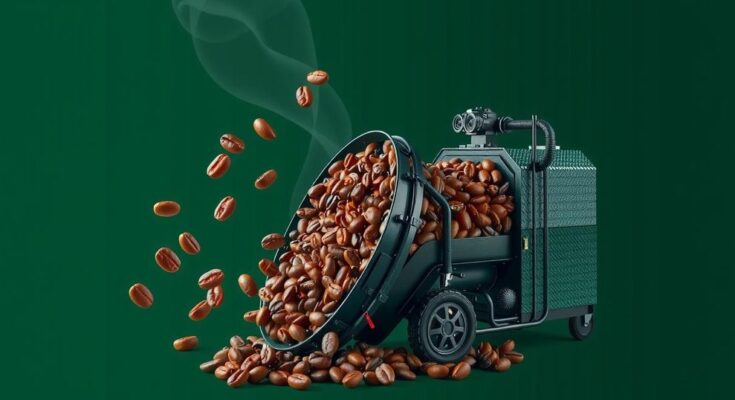The coffee consumption in the UK is unsustainable, generating millions of disposable cups and significant waste. Several companies are innovating to create more sustainable coffee solutions, including the ButterflyCup, which is 100% paper, and bio-bean, which transforms used coffee grounds into bio-fuel logs. These efforts aim to mitigate environmental impact and promote a circular economy.
The coffee consumption in the United Kingdom amounts to approximately 35 billion cups annually, which poses significant environmental challenges. Each year, over 2.5 billion disposable coffee cups are discarded, alongside half a million tonnes of used coffee grounds that are sent to landfills. The coffee industry is also a contributor to the nation’s carbon footprint, which the government has committed to neutralizing by 2050. In response to these issues, various coffee-related businesses are proposing innovative solutions. One such innovation is the ButterflyCup, a 100% paper cup devoid of plastic coating or lids, developed by Irish entrepreneurs Tommy McLoughlin and Joe Lu. The cup design allows users to create a lid by folding the paper after receiving their beverage. “We believe it is the world’s most environmentally friendly disposable cup,” asserts Mr. McLoughlin, emphasizing the cup’s advantages despite some challenges with recycling. Although it is slightly more expensive than conventional disposable cups, it provides a lower cost alternative compared to traditional compostable options that require separate lids. Efforts to utilize coffee waste are also underway. A London-based enterprise named Ernie employs a vintage electric milk float to deliver coffee in reusable and recyclable containers, collecting empties for reuse. Despite disruptions caused by the pandemic, the company aims to mitigate plastic waste in its operations. Moreover, bio-bean, a UK company, converts used coffee grounds into bio-fuel logs for fireplaces, which are then sold through various retailers. Additionally, the Finnish company Rens integrates coffee grounds into its sustainable footwear products, creating shoes from a polymer blend of recycled materials. In response to the increasing sales of single-use coffee pods during the pandemic, companies have developed compostable alternatives that facilitate recycling and support a circular economy. These advancements underscore a broader trend toward sustainability in the coffee market, driven by consumer demand and innovation.
The coffee industry in the United Kingdom generates significant waste, particularly in the form of disposable cups and used coffee grounds. These practices not only contribute to landfill overflow but also to carbon emissions that impact climate change. In light of these concerns, businesses are exploring alternatives that minimize environmental impact—such as the ButterflyCup, which offers a fully paper-based solution, and bio-bean, which seeks to repurpose coffee waste into usable products. This article discusses various innovations within the coffee sector and the potential for a more sustainable consumption model.
In conclusion, the UK coffee industry faces pressing environmental challenges related to waste and carbon emissions. However, companies like ButterflyCup, Ernie, and bio-bean are introducing sustainable practices and products aimed at reducing the ecological footprint of coffee consumption. The success of these initiatives largely hinges on consumer willingness to embrace change and support more environmentally friendly options. As industry leaders emphasize the importance of transitioning to sustainable materials, there is cautious optimism about the potential for a greener coffee culture in the UK.
Original Source: www.bbc.com




